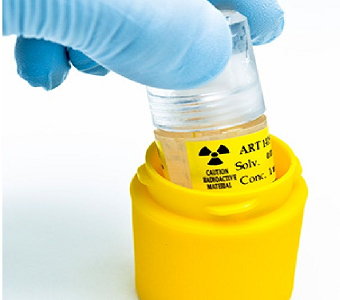The hope remains alive that Optimer (OPTR) will somehow power through a disappointing launch and increase prescription growth sufficiently to offset the 25% discount that the company had to recently offer hospitals to start prescribing Dificid. Dificid is OPTR’s only product and is a bactericidal agent for the treatment of Clostridium dificile (C. diff.) infection. A gram positive bacteria, C. diff. causes severe diarrhea typically when natural bacteria in the gut have been wiped out by the use of powerful antibiotics. Infection typically affects those in hospitals and nursing homes, and can range in severity from asymptomatic to severe and life-threatening, especially among the elderly. Importantly, the two most commonly used treatments, metronidazole and vancomycin are highly effective and are available as cheap generics. While Dificid does offer incremental efficacy, hospitals are confronted with the choice of using the significantly cheaper generics vs. Dificid, which can offer a benefit of fewer re-treatments but costs several-fold more. Retreatments can be costly for hospitals and institutions due to the reimbursement cap for a C. diff patient, but doctors feel very comfortable with the older treatments and in fact, sometimes use both metronidazole and vancomycin in combination for high risk patients. Hence, the market for Dificid may not be as large as bullish analysts estimate. Prescription trends evidence that Dificid does require significant “selling” efforts and that hospitals are extremely price sensitive, despite the incremental efficacy offered by Dificid. The prescription trends also suggest that OPTR is unlikely to deliver compelling sales growth for Dificid in the near term, and could disappoint on quarterly sales expectations, which will keep pressure on the stock. Most importantly, Dificid could be what we call a “structural short”, in that the value proposition has a fatal flaw. This flaw, in our view, is that the bull case for OPTR is fully based on long-term sales estimates for Dificid, and with several product candidates, many from major drug companies, to treat C. diff in the pipeline, the sales opportunity for Dificid is likely to be significantly lower than anticipated on a long-term basis. We expect that OPTR will not be able to overcome the short and long-term risks to Dificid sales estimates, and that investors should either wait for a better entry point or avoid the stock entirely.
Dificid discount having insufficient impact on prescription trends thus far. OPTR shares are currently trading with a close eye on near-term Dificid prescription trends, however, the market will ultimately realize that the real risk lies in the long-term prospects for Dificid. Meanwhile, the current prescription trends are underwhelming and suggest that Street estimates are going to be hard to meet in the coming quarters, despite lowered expectations. Thus far, Wall Street analysts have had to lower estimates several times. In January, according to IMS Health prescription data, prescriptions for Dificid increased by 17% vs. December, and while that appears robust, December’s prescription trends were actually down 9% from November. In other words, January’s growth looked better because of December’s lower base. Taking the 17% growth in January less December’s 9% decline means that since November (a two month span), prescriptions were only up 8%. Annualizing that calculates to just 48% forward growth in 2013 for the product, vs. Wall Street’s expectation for 67% Deficid sales growth this year. While the company has increased its price for Dificid by about 5% at the start of this year, recall that the 25% discount to hospitals is significantly outweighing this price increase, as well as the prescription growth noted above. On top of that, the company recently instituted the Dificid Rx Assist Program, providing up to $200 to patients that have to pay a high co-pay when picking up their Dificid prescription from the local pharmacy after being discharged from the hospital. That represents about a 10% discount off of the company’s net selling price for Dificid in the outpatient setting.
Lastly, we will mention the distribution channel, which appears to have been loaded by the company with Dificid product. Analysts estimate that there is about 28 days of Dificid sales currently in the distribution channel, about twice as much as wholesalers typically carry. This means that the company will have to wait for that inventory to work down before shipping more Dificid from its factory. These are all telltale signs that the product is not selling as well as expected, and that a potential sales and earnings miss for OPTR could be looming.
Current competition makes the Dificid opportunity difficult. The current standard of care for treating C diff. is either metronidazole or vancomycin by mouth for 10 days. Vancomycin is believed to be the more effective treatment, and with the introduction of the first generic vancomycin in 2012, that drug is being used more commonly as the first line agent. It’s interesting that in the past, metronidazole was used significantly despite vancomycin’s superior efficacy, hence hospitals were actively trading some efficacy for cost benefits. We think that this is the same issue Dificid is facing today in the marketplace, although this drug is competing with two highly effective generics, not just one. We have also found, in speaking with treating physicians, that patients at high risk of recurrence may even receive a combination of metronidazole and vancomycin, hence there are several effective alternatives to Dificid, and that could be a key reason why the drug is being adopted more slowly than expected. For comparison purposes, a course of Dificid costs roughly $2,100 (after the 25% discount) and the generics cost, on average about $500 per course. Some hospitals are treating patients with Dificid if they are at high risk for re-treatment, however, a large number are likely to continue to use the cheaper generics and take the risk on certain patients that are good candidates for the current standard of care treatments.
Long-term estimates at risk with significant competition on the horizon. Based on the current Dificid prescription trends and estimated sales for 4Q (between $16-$17 million), it looks unlikely that OPTR will meet the Street’s expectations for Dificid sales this year of about $100M. We believe that Dificid is likely to sell less than $90M this year given the current prescription trends and the discounted price. The company reports earnings on Feb. 28th, and as a result, we could see another round of estimate reductions by bullish analysts. More troubling, however, is the long-term picture for the company. In particular, we are talking about several competitive products to treat C. diff. that could launch over the next several of years. Among the biggest threats comes from Merck & Co. (MRK), for which internal expectations at MRK are high for its C. diff treatment (called MK-3415A). This drug is a combination of two monoclonal antibodies that have shown in early trials to reduce the recurrence of C. Diff. by 70%. Phase III results are due for MK-3415A in mid-2014, suggesting that MRK could enter the market in 2015. Importantly, OPTR analysts continue to show strong growth for Dificid beyond the 2015 time-frame, largely ignoring the competitive threat from MRK and other product candidates. Analyst price targets for OPTR are based on long-term discounted cash flow (DCF) analyses, and those estimates could break down as significant competition reduces the long-term outlook for Dificid.
Cubist Pharmaceuticals (CBST) also poses a key threat to OPTR, and this story has an interesting pedigree. Currently, CBST sells Dificid in the U.S. market for OPTR, and this agreement ends mid-2013. As a result, OPTR’s marketing expenses are expected to rise as its partner moves on. Interestingly, CBST has its own treatment for C. diff. in Phase III development (surotomicin, or CB-183,315), and like the MRK drug, trial results are anticipated in 2014, with a potential launch in 2015. CBST moving forward with its own internal product, while promoting OPTR’s product, is telling in our view, as CBST’s internal analysis likely indicates that its drug candidate can at least take share from Dificid, if not overtake Dificid.
Other products in the pipeline being developed for the treatment of C. diff. include:
Sanofi-Aventis’ (SNY) ACAM-CDIFF candidate (Phase II), ViroPharma’s VP20621 (Phase II; data expected June 2013), Novartis’ (NVO) LFF571 (Phase II), and Pfizer’s (PFE) C. diff vaccine (Phase I). Given the competitive landscape, it appears that Dificid is going to have to share the market with some big firms in the long-run, indicating that long-term estimates and growth for the company are not realistic.




